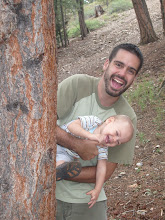To be quite honest, the first time I read this paper I thought that I was in over my head. I could not wrap my mind around Kinneavy's focus or point and did not recognize the authors and/0r theorists to which he was referring.
After a good night's rest and a Stewart Smalleyesq reaffirmation, I tackled it again...only to find the information slightly more understandable and the point hazy, but visible.
In his conclusion, however, I am able to find the pertinence in the world of education and ignore my ignorance of rhetorical history and theory. Though my experience in teaching writing is relatively short, seven years, I have noticed a shift in philosophy of the writers of the writing curriculum recently that seems to relate to one of Kinneavy's statements, no composition program can afford to neglect any of these basic aims of discourse (Kinneavy, 137). Curriculum and school administration have encouraged teachers to treat writing as a cross-curricular activity, thus fulfilling some of the requirements to teach "different" aims of discourse at the same time as fitting more writing time into an already saturated curriculum.
I agree with this approach because students need to be taught (or, to work in Berlin's thoughts, given the opportunity to learn) how to write in different situations, about varying topics, and for different purposes. A great example of this is teaching students how to respond to literature. They make personal connections to their reading that first show understanding of the text (essential to our results driven, test-happy focus) but more importantly enhance their comprehension of the reading using a higher level of thinking. The best part is, students who "hate" to write (or in Berlin's more poetic voice: the dismay students display about writing [Berlin, 256]) don't realize they are writing because it is a reading assignment. In social studies, when asked to complete an essay, they are "tricked" into writing an informative or perhaps even a persuasive piece. Mathematics offers the chance for students to describe processes. Then finally, in writing class, we can write poetically or expressively. Through cross-curricular activities, students are given the opportunity to hit most of Kinneavy's aims of discourse.
In his conclusion, Kinneavy discusses the negative effects of not addressing each the "natural" aims of discourse and here is where I would like to add my own, that I already alluded to. By making writing too technical, too much about rules and processes, too much about fulfilling obligations (grading, portfolios, rubrics), we are turning students away from it. Writing needs to be presented as a natural learning aid, but it also needs to be presented as a fun, exciting, worthwhile activity that can be performed even when it's not assigned by a teacher for a grade! Teachers of writing should model writing, both the technical aspects and the fun aspects, using professional language as well as metaphorical language (Berlin, 263) and allow students to see the wonderful worlds they can visit through writing.
So my own basic aim of discourse is to teach (sorry Berlin) truths about the world, the technical, professional, informational, expressional (is that a word?), and allow each writer, both student and professional alike, to discover their own aim of discourse.
Subscribe to:
Post Comments (Atom)

2 comments:
As one who has not taught yet I was hoping that my ideas of letting students write for themselves was not too idealistic. It is encouraging to see that some teachers are able to embrace individuality and creativity, while adhering to all the Standards and bureaucracy that all teachers are subject to. It is also nice to know that there are curriculums and school administrators that encourage teachers to treat writing as a cross-curricular activity. Something I really look forward to doing.
Although I had no formal teaching education, I spent four years as a Girl Scout Leader encouraging the girls in my troop to explore the joys of writing and reading. I used strategies that others used to teach me. Research and creativity, individual and community efforts, and always joy. We wrote to Peace Corps workers, published a newsletter, and kept a troop journal. We tried to be inclusive of the four year age differences and one girl used a tape recorder to collect her thoughts (we had no computers at that time).
KUDOS to any teacher who instills the love ow reading and writing in students. Two of my three children had great teachers all their school years except one. My other child had only two good English teachers in 12 years. I was fortunate not to have to "teach for a State test" in a classroom of 30.
I never knew this activity of mine would qualify as an extracurricular activity in literacy discussed in The Bedford Bibliography.
Post a Comment